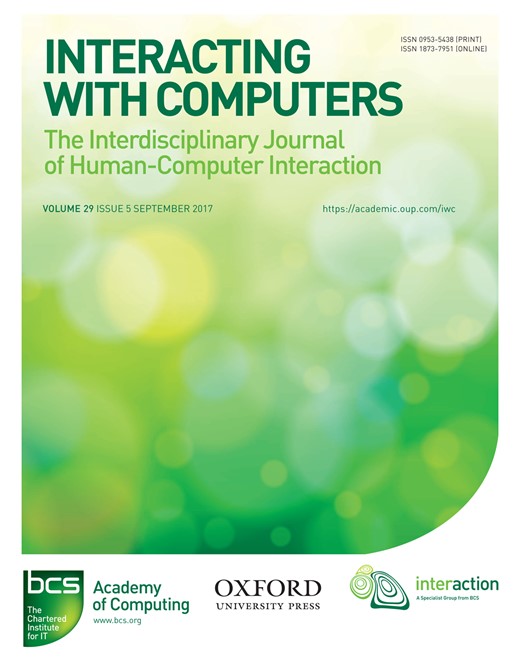-
Views
-
Cite
Cite
Anne Weibert, Dave Randall, Volker Wulf, Extending Value Sensitive Design to Off-the-Shelf Technology: Lessons Learned from a Local Intercultural Computer Club , Interacting with Computers, Volume 29, Issue 5, September 2017, Pages 715–736, https://doi.org/10.1093/iwc/iwx008
Close - Share Icon Share
Abstract
Studying the setup and development of an initiative of computer clubs in intercultural neighborhoods, this paper builds on the theory and method associated with value sensitive design to account for the use of off-the-shelf technology in a diverse cultural context, and over an extended period of time. We present three cases from one of these computer clubs, each at a different point in time in the club's development. Central factors are identified that impact the course of a socio-technical initiative. We highlight the challenges inherent in matching existing ICT with the values both explicitly identified in the initiative and which evolve over time. Our study highlights the relevance of open communication structures among researchers and local practitioners, as well as methodological support that is needed to span a wide range of user experiences. Both aspects are key to making value sensitive design a lived experience on the diverse community level.





